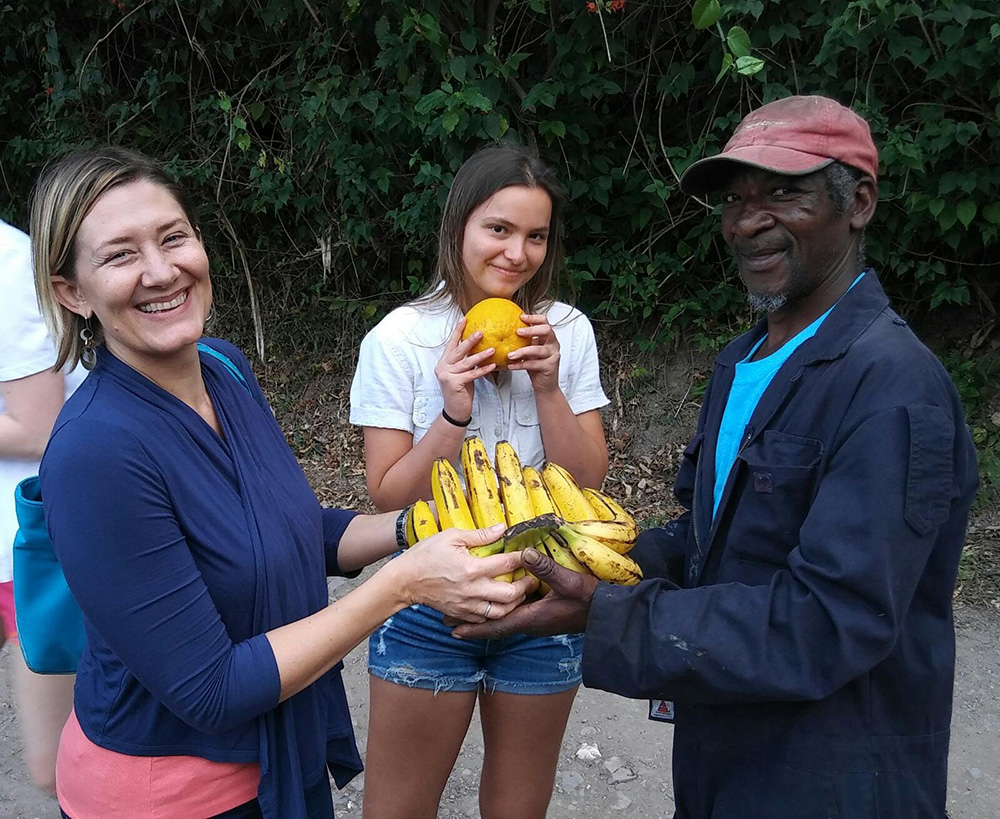How to Study Abroad
Steps to Study Abroad
Step 1: Obtain a Passport
 Obtain a passport or renew an existing passport. United States citizens can obtain
information on passport costs and how to renew them through the U.S. Department of State website(Opens in new window). Students are encouraged to request passports 8-10 weeks before departure. The following
facilities can accept and mail passport documents:
Obtain a passport or renew an existing passport. United States citizens can obtain
information on passport costs and how to renew them through the U.S. Department of State website(Opens in new window). Students are encouraged to request passports 8-10 weeks before departure. The following
facilities can accept and mail passport documents:
- University of Florida Mail and Document Services(Opens in new window) located on 3030 Radio Rd., Gainesville, FL
- S. Postal Service Main Street Station(Opens in new window) located at 1401 N. Main St., Gainesville, FL
- Alachua County Clerk of Court(Opens in new window) located on 201 E. University Ave., Gainesville
You may search for additional passport acceptance facilities through the U.S. Department of State website(Opens in new window).
Step 2: Select a Program
Learn more about the study abroad programs currently being offered by visiting the SF Faculty-Led Study Abroad Programs page(Opens in new window). Students should not select a program solely based on the destination. They should also consider the topic to be studied, how this fits into their course of study, and how this will enhance future academic and career goals.
Step 3: Contact the International Education Coordinator
Contact the International Education Coordinator by emailing ieo@sfcollege.edu, calling 352-395-5657, or visiting the International Center on the third floor of Building S. Together, you can discuss the different study abroad programs and next steps.
Step 4: Speak to a Faculty Leader
Students interested in studying abroad should meet at least one of the faculty members who are leading their desired program in order to learn more about the itinerary, topics to be covered, and additional requirements. Faculty leaders will schedule a meeting to interview interested students, review goals and expectations, and determine the suitability of the program for each student. You can find the faculty names and contact information on the SF Faculty-Led Study Abroad Programs page.
Step 5: Make a Financial Plan
Study abroad programs represent a significant financial investment. Many of us develop a financial plan before buying a new computer, smart phone, or car. These are seen as essential and often indispensable tools for our technological development, mobility, and success in the twenty-first century. Similarly, students who wish to develop their global knowledge, intercultural competence, and skills needed to succeed in our globalized world should consider investing in a study abroad during their college career. Visit this website to learn more about ways to finance study abroad.
Step 6: Complete a Study Abroad Application
A study abroad faculty leader and/or the International Education Coordinator will add you to a study abroad Canvas shell where you can begin a study abroad application. You will be prompted to complete various required forms, upload a copy of your passport, and begin making study abroad payments.
Step 7: Start Making Payments
All study abroad participants are required to make a $250 deposit in order to hold their place in a study abroad program. Remember that spots in each study abroad program are limited. An initial payment will indicate a student's willingness to commit to this educational experience. The initial deposit and subsequent payments should be made through the Santa Fe College Cashier's Office located on the first floor of F building. You can visit the Cashier's Office website for payment options or contact them at 352-395-5227. When making a deposit, be sure to state your Santa Fe identification number and the country where you wish to study abroad.
Step 8: Access and Opportunities in Study Abroad
Santa Fe College is committed to equal access and equal opportunity in all of its programs and activities. This is compliant with federal law, state law, and our own college rule 2.8(Opens in new window) and procedure 2.8P(Opens in new window). However, students should be aware that some of the countries that have been selected as study abroad destinations may not be as accessible or inclusive as the United States of America. Students are encouraged to review the U.S. Department of State travel advisory(Opens in new window) to learn about the country they wish to visit. They should also review the guidance that the U.S. Department of State provides:
- U.S. students abroad(Opens in new window),
- travelers with disabilities(Opens in new window),
- LGBTQI+ travelers(Opens in new window), or
- other travelers with special considerations(Opens in new window).
Mobility International(Opens in new window) is a non-profit organization that provides valuable resources for students with disabilities who are interested in studying abroad. Students are invited to listen to their podcast, Ripple Effects: Travelers with Disabilities Abroad(Opens in new window), accompanying video series(Opens in new window), and publications. Santa Fe students who require accommodations during a study abroad program should contact the Disability Resource Center to discuss their specific case and determine what reasonable accommodations can be provided.
Students may also wish to review an easy-to-read map of sexual orientation laws published by the International Lesbian, Gay, Bisexual, Trans, and Intersex Association.